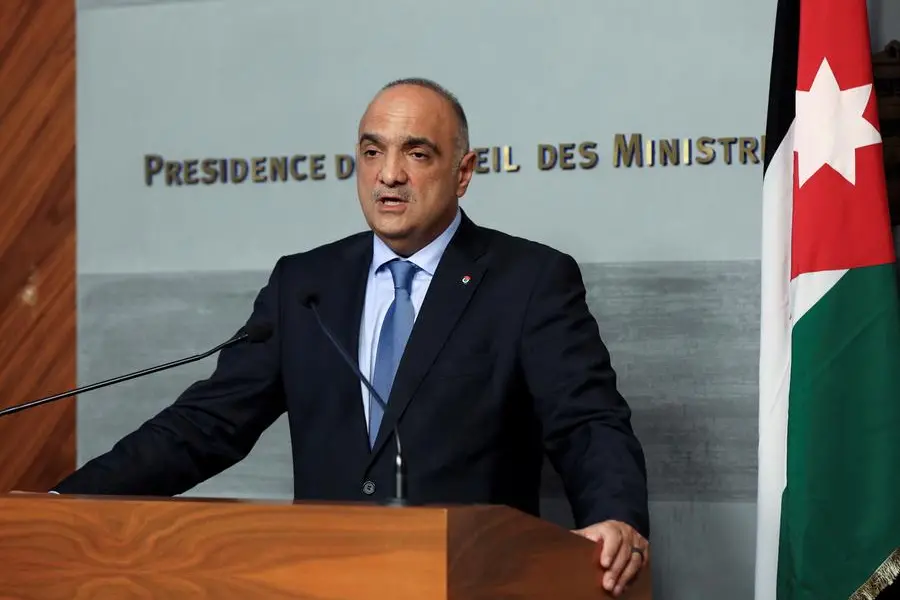PHOTO
AMMAN - Jordan's Prime Minister Bisher al Khasawneh said on Tuesday the Gaza conflict's negative impact on the country's aid-dependent economy had put the brakes on a promising performance last year that had seen a surge in tourism revenues and higher growth.
"Last year (2023) before Oct. 7 economically was an extremely, extremely promising year," Khasawneh said.
Khasawneh said disruptions to Red Sea shipping on the main East-West route caused by Houthi militant attacks was the latest hit alongside the plunge in tourism that had prior to the Oct. 7 attack by Hamas on Israel seen a boom that outstripped levels nearly five years ago
"Tourism took a major hit and other sectors are still suffering," Khasawneh said in Davos, according to state media.
Rating firm S&P Global said last November the tourism sector could suffer the most in Jordan, Lebanon and Egypt due to their proximity, hampering real GDP growth although it could be mitigated by support from donors.
The economy last year was headed for a 2.8 % growth rate that could signal a reversal of years of stagnant growth hovering around 2% and with foreign investments rising by around $300 million from the previous year.
The country last year witnessed a nearly 40% surge in tourism receipts that generated $5.15 bln in revenues, official data showed.
Transport costs for cargo arriving at Aqaba's Red Sea port from southeastern Asia had risen by around 160% while Europe- and U.S.-bound cargo went up between 60% and 100%, Khasawneh said.
Businessmen fear it will have inflationary pressures in a country where inflation is projected at a low 2.6% this year.
"It has posed a challenge," said Khasawneh, whose country was seeking to improve its competitive edge through an economic modernization plan launched last year that seeks to generate over a million jobs within 10 years.
Last weeks' approval by the International Monetary Fund of a new $1.2 billion, four-year loan program to support Jordan's economic reforms was a sign of investor confidence in the country, Khasawneh said.
"This is a testimony to economic policies that are sound and to our political stability," Khasawneh said, adding that Jordan was able to maintain stable sovereign credit ratings against "the odds" in a climate where many of its peers were downgraded.
The IMF said the new program would build on Jordan’s "consistently strong performance under the previous program" to support the Middle Eastern country's work on maintaining macro-stability, further building resilience and accelerating structural reforms.
Jordan's resilience and stability and its accelerated reform agenda would help it mitigate the negative impact of the conflict, Khasawneh added.
"We are hoping to see things back on track soon," he said.
(Reporting by Suleiman Al-Khalidi; editing by Jonathan Oatis)




















